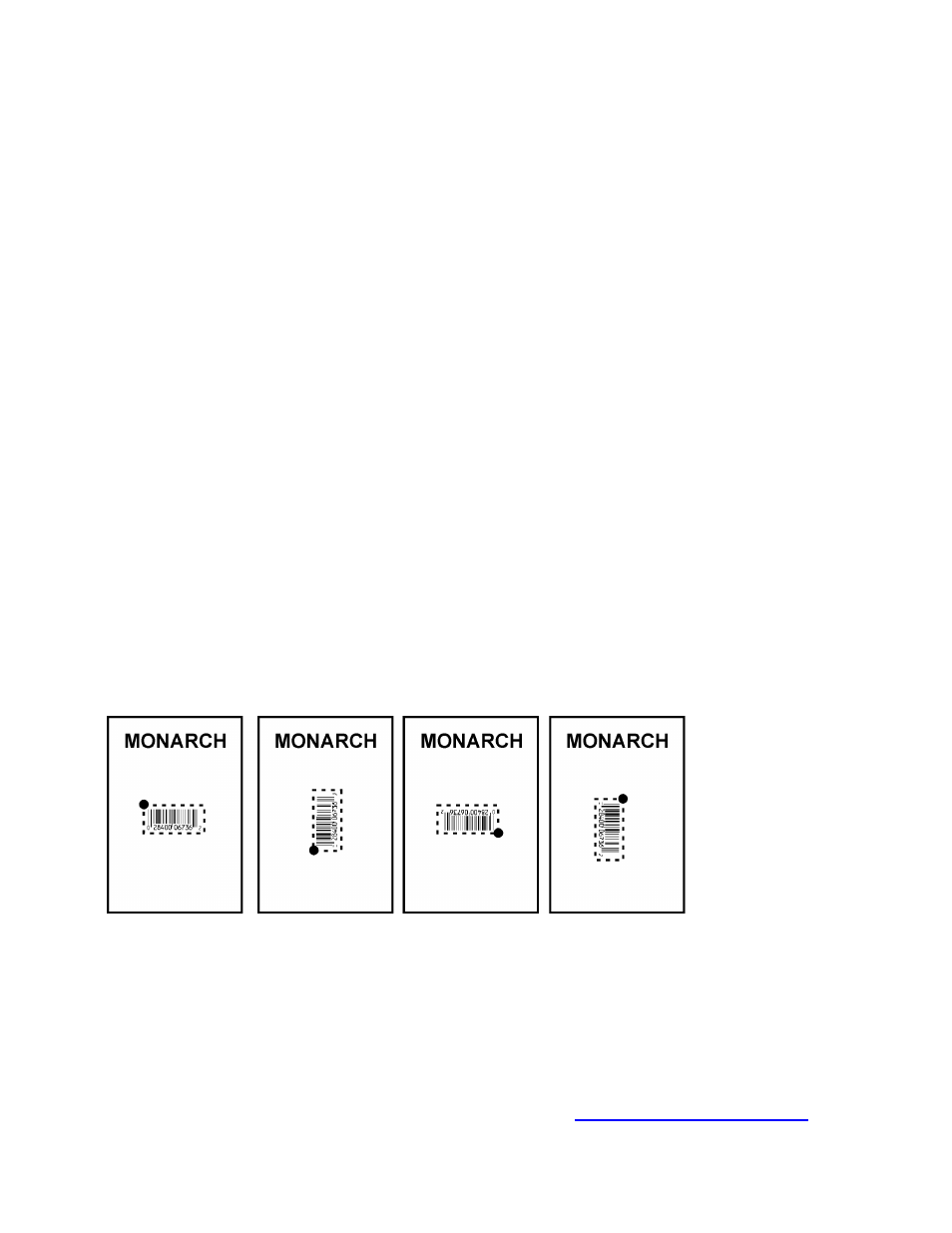Defining the barheight tag (required), Defining the type tag (required), Defining the orientation tag (optional) – Avery Dennison Pathfinder 6057 LNT Programmer Manual using XML User Manual
Page 32: Defining the options tag (optional)

3-12 LNT Programmer’s Manual
Defining the BarHeight Tag (Required)
The BarHeight tag defines the bar code’s height (in selected units).
Valid values include: An integer or float greater than zero and less than the <ImageHeight>
minus the <Origin> value in selected units.
It contains the following attribute: units.
Syntax
units
Unit of measure. Options:
Inches
Inches
MM
Millimeters
Pi xels
Pi xels (default)
Example
Defines the bar code’s height as 0.50 inches.
Defining the Type Tag (Required)
Defines the bar code type for this field.
Valid values include: Any Unicode string of less than 256 characters, including:
upca, upca+2, upca+5, upce, upce1, upce+2, upce+5, ean8, ean8+2, ean8+5, ean13, ean13+2,
ean13+5, i2of5, itf, code39, code93, code2of5, codabar, nw7, msi, code128, code128a,
code128b, code128c, pdf417, micropdf417, maxicode, code16, data matrix, quick response, qr,
postnet, gs1databar, gs1, or rss.
Syntax
Example
Defines the bar code type as upca.
Defining the Orientation Tag (Optional)
The Orientation tag selects the rotation of the bar code in degrees.
Valid values include: 0, 90, 180, and 270. The default is 0.
Syntax
Example
Rotates the bar code 90° on the label.
Defining the Options Tag (Optional)
The Options tag defines any options supported by the bar code’s <type>. For more information
about each bar code’s supported options, see Chapter 4, “
” for more
information.
0 Rota ti on
90 Rot ati on
180 Ro tati on
270 Ro tati on
